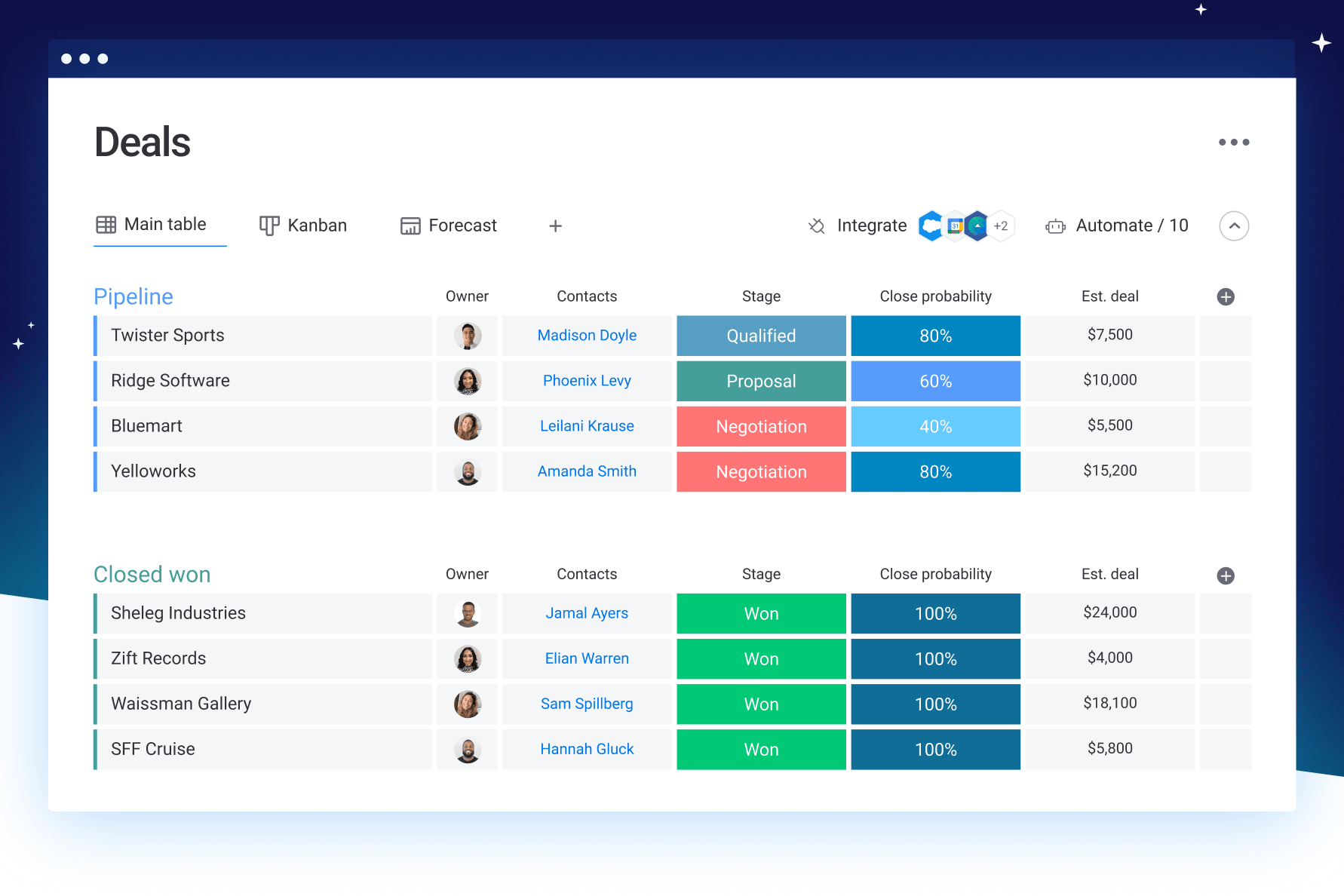Choosing Wisely: A In-Depth Investigation of Customer Relationship Management Systems
Within today’s fast-paced corporate landscape, overseeing customer relationships effectively is more crucial now more than ever. As businesses companies expand and develop, so do requirements for streamlined communication, structured information, and enhanced efficiency. That’s where CRM systems comes into play, offering a holistic solution to streamline client interactions and boost overall customer contentment. Nonetheless, with a wide range of choices available in the market, selecting the best CRM platform can be quite daunting.
Each business is distinct, and the ideal CRM software will vary based on specific needs, scale, and sector. It is crucial to ensure you understand your present requirements but also to foresee future expansion. In this article, we will examine the key factors to consider when selecting a CRM system, empowering you to make educated decisions that will benefit your business for the years to follow.
Key Features of CRM Software
An comprehensive CRM software solution offers several key features which can greatly boost organizational operations. The of the critical components is customer management, that allows companies to arrange and preserve customer information in a centralized database. This feature enables simple access to customer details, communication history, and preferences, making it simpler for sales teams to interact with clients effectively and tailor outreach efforts.
Another essential feature of CRM systems is sales automation. This functionality simplifies the sales process by automating repetitive tasks such as lead tracking, follow-ups, and reporting. With sales automation, teams can concentrate on building relationships and closing deals, rather than getting bogged down by administrative tasks. This efficiency often brings about increased productivity and higher conversion rates.
In conclusion, robust analytics and reporting capabilities are vital in a CRM solution. These tools offer valuable insights into customer behavior, sales performance, and market trends. Evaluating this data enables businesses to make informed decisions, identify areas for improvement, and ultimately adjust their strategies to more effectively meet their customers' needs. By leveraging analytics, businesses can outpace the competition and improve their overall customer experience.
Leading Customer Relationship Management Platforms Evaluated
When it comes to picking the perfect CRM software for your company, many platforms shine due to their features, ease of use, and customer support. Salesforce remains a leading choice for many organizations, delivering extensive customization options and a robust ecosystem of third-party integrations. Its features cater to companies of different sizes, allowing you to scale as your requirements change. crm software learning phase can be steep, but the power it provides is unmatched, particularly in the realm of detailed analysis and automation.
Another solid contender is HubSpot CRM, which has made a name for itself with its intuitive interface and free tier. SMBs particularly value the effortless onboarding process and a heavy emphasis on inbound marketing features. HubSpot provides essential CRM functionalities without confusing users and enables later upgrades as companies expand, making it an great option for those beginning with CRM solutions.
Zoho CRM also warrants attention for its cost-effectiveness and comprehensive feature set. This software is designed for companies looking for an all-in-one solution, including sales automation, customer analytics, and communication across various channels. It has flexibility and integration capabilities with related apps make it a great pick for companies seeking flexibility without spending too much. It's ideal for groups that need a robust CRM solution at a reasonable price point.
Top Practices for Implementing Customer Relationship Management
Adopting a CRM system efficiently requires meticulous strategy and consideration of your organizational requirements. Begin by setting your targets and the particular challenges you want the CRM software to solve. Engage key stakeholders from multiple areas to gain insights into their requirements and ensure the system conforms with the complete business strategy. A clear implementation plan will facilitate the process and help evaluate progress in relation to your objectives.
Skill development is crucial for a smooth CRM launch. Team members need to be familiar with the features and capabilities of the CRM platform to use it effectively. Organize comprehensive training programs tailored to different user groups, ensuring that all users understands how to take advantage of the system for their individual roles. Regular help and recap training can assist ensure high utilization rates and skill as updates are added or modifications occur.

Consistent assessment and input mechanisms are essential for optimizing the benefits of your CRM system. Upon deployment, gather feedback from users to gain insights into their feedback and any issues they face. Leverage this data to make required adjustments and improvements to the system. Additionally, periodically evaluate your CRM's success against the defined goals to make sure it continues to meet your business needs and evolves to any shifts in your operational landscape.